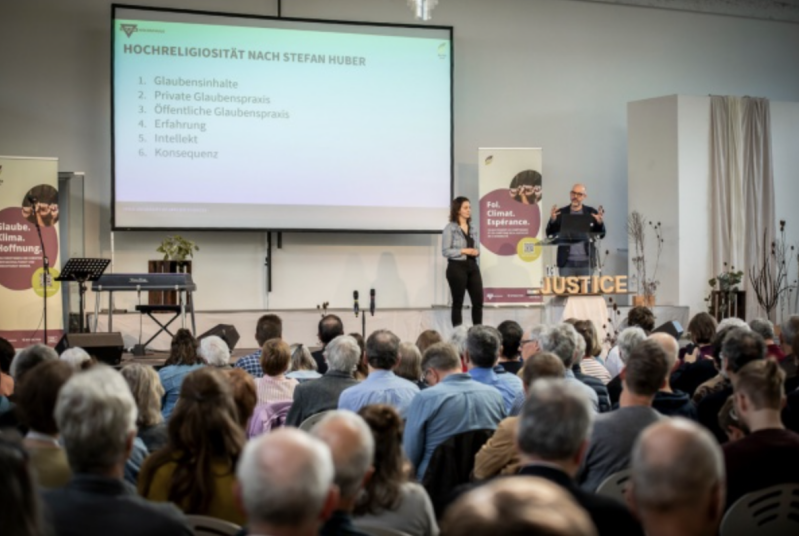
Christian faith motivates believers to seek social justice and live more ecologically sustainable lifestyles, according to a scientific study presented at a ‘StopPoverty’ (StopArmut) conference in Switzerland.
Findings from the research were presented to 300 attendees at a 20th anniversary of the StopPoverty awareness campaign in Biel, according to a Swiss Evangelical Alliance (SEA) statement on April 8. The Unit Empirical Economic Research and Sustainable Finance at the YMCA University of Kassel presented the results of the Ge-Na study during the conference with the theme, ‘Does faith make a difference?’
It is arguably the first known scientific analysis looking at the link between social justice and ecological sustainability among “the sociological target group of religious and highly religious people”, according to the SEA.
"I did not expect such a high level of agreement that faith motivates people to work for justice and sustainability, and that the church should get involved here,” said Matthieu Dobler Paganoni, the main organizer of the StopPoverty conference. “In StopPoverty's awareness-raising work in the churches, we also find that the topic is sometimes rather difficult to address in practice."
The research on behalf of StopPoverty looked at justice and sustainability based on the views of 2,500 people with an average age of 49 in Germany and Switzerland (1,574 in Germany and 782 in German-speaking Switzerland, and 205 French-speaking Swiss).
The three-year study examined the attitudes and behaviors of practicing Christians towards the importance of social justice and ecological sustainability.
Eric Nussbaumer, a member of the National Council, the lower chamber of the Swiss Parliament, addressed the issues in an opening speech at the event. He acknowledged the issue for Christians of putting knowledge into action with social justice and sustainability–when someone’s values do not line up with their actions.
"The study shows that many people attach great importance to social justice,” Nussbaumer said. “Nevertheless, the majority admit that they do not always act accordingly in everyday life. This dichotomy is also evident when it comes to sustainability."
Nussbaumer told the conference that closing the gap between mere knowledge about sustainability and taking practical action can happen partly via financial incentives and new laws. Yet there has been little progress in this regard, he opined.
"Our consumption habits play a role here. It takes energy and willpower to do something about it," Nussbaumer said, and he added that there was still hope for people of faith to to take practical action.
"A gap that is recognized can also be closed. There is no lack of good will, as the survey has shown. I hope that the study will help to close the gap, so that the discrepancy between knowledge and action disappears."
Two questions in the survey received 90 percent approval by respondents: "Does your Christian faith encourage you to work for social justice?" and "Should the Church work for sustainability?"
Half of the study participants showed awareness of the 17 Sustainable Development Goals by the United Nations. A third of the respondents could even explain the meaning of the goals.
Tobias Faix, head of the Ge-Na study and professor of practical theology, called the figure “well above the comparable figure for the Swiss population.”
Meanwhile, concerns about climate change were given a mixture of “yes” and “no” responses.
"Either faith reduces worries or there is little interest in the issue, which is why people are less concerned about it,” said Faix. “What is surprising is that there is no significant correlation with age. Young Christians are not more concerned about climate change."
Salomé Richir-Haldemann, campaign coordinator for StopPoverty in French-speaking Switzerland, explained the reasons for conducting the study. "We wanted to know how Christians position themselves on the issues we have been raising awareness of for 20 years," she said.
The research will feed into future awareness campaigning, including in the political sphere, on justice and sustainability by StopPoverty. The campaign offers resources to help churches seeking to put faith into action on social issues. The inspiration comes from their lead verse in Micah 6:8, which reads: He has shown you, O mortal, what is good. And what does the Lord require of you? To act justly and to love mercy and to walk humbly with your God.





